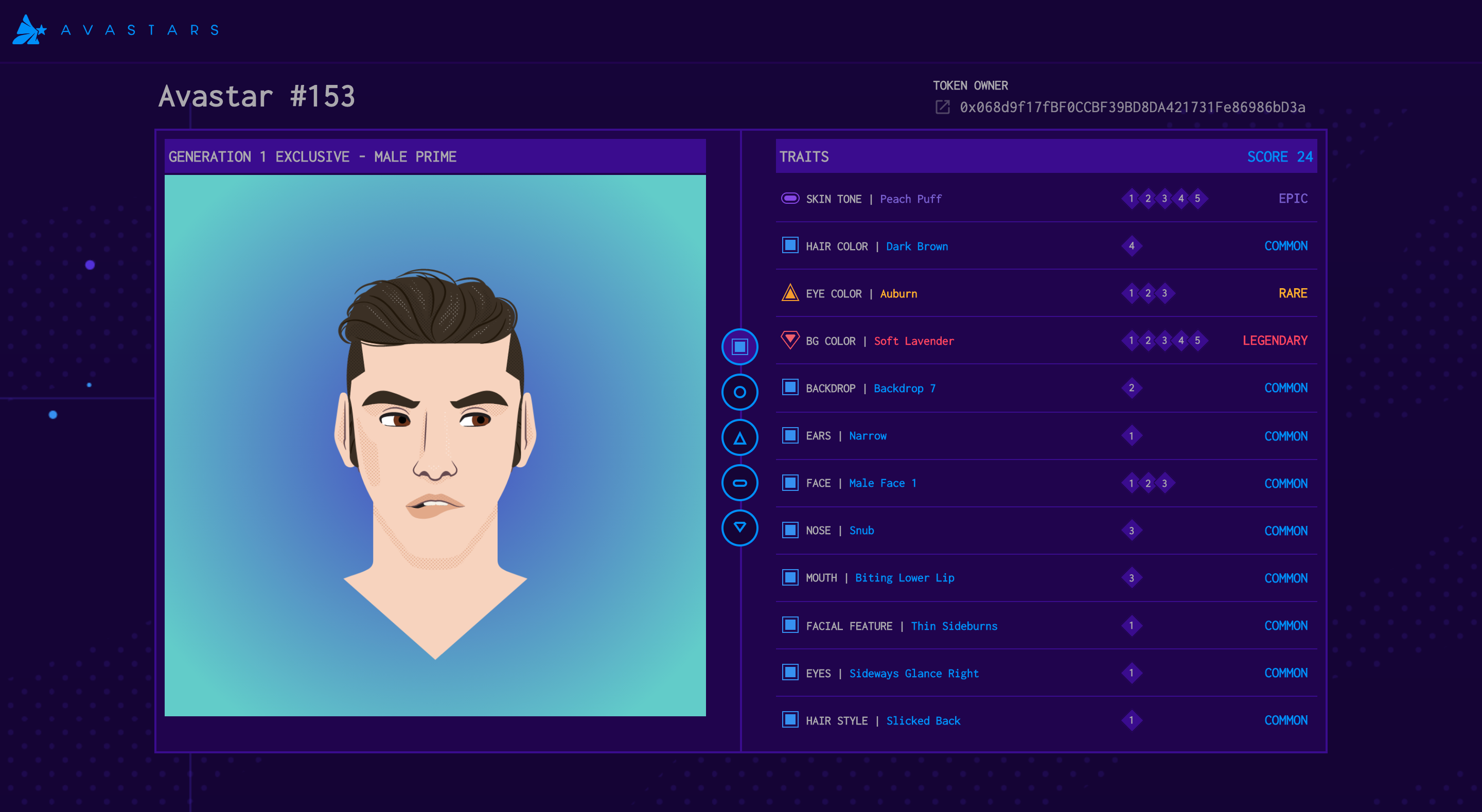Avastars Fully On-Chain NFT Launched

Chance encounter on Reddit leads to a groundbreaking NFT release
Last year, while searching for beta readers for our CEO's book Building on Ethereum with Solidity and React, we crossed paths with Jim McNelis.
Jim has a tech background and is also an NFT collector. He had become outraged that the images of his expensive Cryptokitties were not part of the blockchain promise of permanence.
As with most NFTs, the images are considered "too big" to put on-chain. Instead they're stored on a service like Piñata or AWS. If the project owner turns stops paying the bills for that hosting, the NFTs are little more than a number in a contract somewhere.
Building a Dream
We engaged with Jim to first do a proof of concept for an on-chain NFT (using lightweight SVG for storage on the contract). Once we proved that was possible, Jim hired us to build property we launched today.
Using Javascript, React, Firebase, Node.js, Express.js, and Solidity we created the NFT contract suite and online store, as well as a bespoke dashboard to optimize and preview artwork layers from the artists, manage and visualize rarity distribution, upload it all to the blockchain safely.
Groundbreaking Features
As far as flag-planting goes, this project is the first entirely on-chain NFT, where both the image and the metadata are stored on-chain. Usually the metadata is also stored off-chain as well.
In a first for the OpenSea marketplace, they build a custom service that gets its metadata from our contract rather than asking for and following an off-chain url.
The UI and minting process is different from anything else on the market. We eschewed the usual "Gumball Machine" model for generative NFTs where you put in your coin and settle for what you get. We generate the NFT (from over 4 quadrillion possible layer combinations) in a continuous scrolling feed in the browser. Choose as many as you want and mint once.
- Mint your own Avastars, while they last.
- View the collection on OpenSea Marketplace.
- Read our CEO Cliff Hall's Collector's Guide to Avastars.